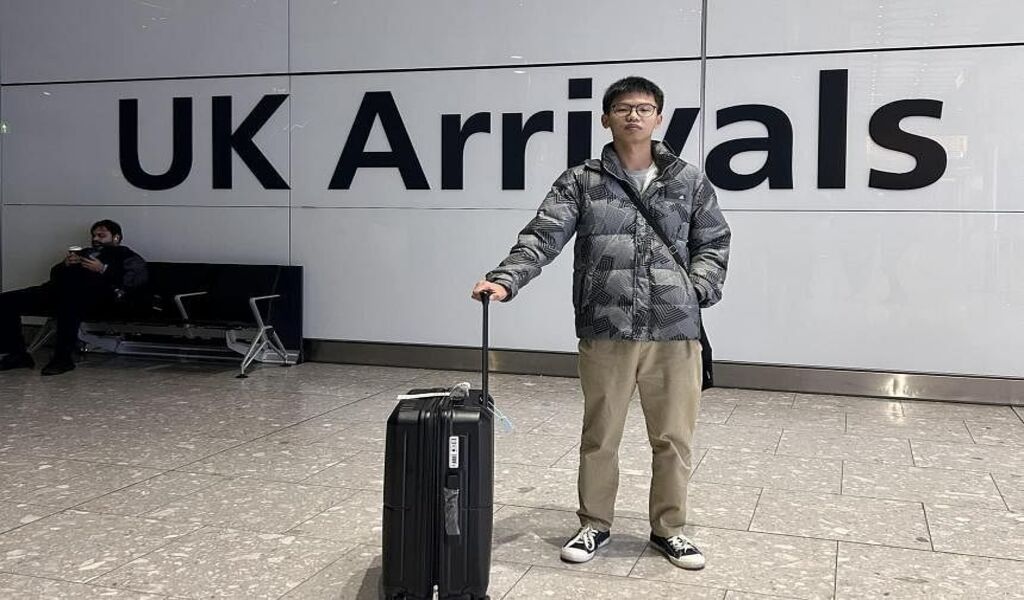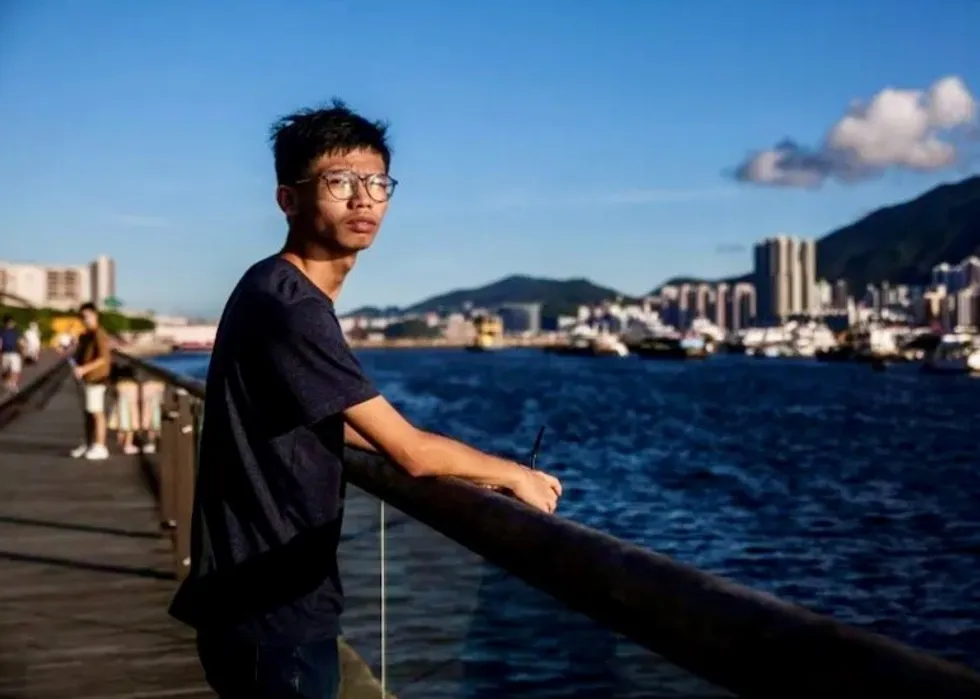(CTN News) – A prominent advocate for democratic principles, Tony Chung, has recently fled Hong Kong in pursuit of asylum in the United Kingdom, thereby violating a supervision order imposed upon him.
In an interview with the BBC, the 22-year-old activist revealed the intense scrutiny he experienced in Hong Kong, highlighting the considerable stress imposed on him by local law enforcement.
Chung disclosed that he had felt compelled by the police to assume the role of a paid informant, sharing information about his fellow activists.
Previously convicted of advocating for the secession of Hong Kong under the stringent national security law, Chung completed his sentence in June.
However, upon release, he found himself ensnared in a situation that he described as “an even bigger and more dangerous prison” than the physical one he had left behind.
Operating under a one-year supervision order, Chung was obligated to seek permission for international travel. Authorities granted him approval to visit Japan for a six-day holiday starting on December 20.
It was during this trip that he experienced an emotional moment, leading him to decide on seeking asylum in the UK instead of returning to Hong Kong.
Efforts to obtain comments from the Hong Kong police on Chung’s claims are currently underway.
Chung joins the ranks of several pro-democracy activists who have fled Hong Kong in recent years. The exodus follows a series of massive demonstrations in 2019, prompting Beijing to impose a stringent national security law, purportedly aimed at restoring stability to the city.
This legislation, however, has been widely employed to suppress dissent and has been particularly impactful in targeting activists like Chung.
In late 2021, Tony Chung received a three-year and seven-month prison sentence for advocating Hong Kong’s pursuit of independence.
As the leader of the disbanded fringe group Studentlocalism, he faced charges related to his views on independence, a stance held before the national security law came into effect.
Tony Chung’s Ordeal: Intrusive Surveillance and Psychological Pressure
Additionally, Chung was found guilty of insulting the national flag in a separate case in December 2020, stemming from his arrest near the US consulate in October of that year, with supporters claiming he was en route to seek political asylum.
Upon his release on June 5, Chung detailed the intrusive nature of his interactions with national security police. He alleged that these authorities scheduled frequent meetings, occurring every two to four weeks, during which they scrutinized every aspect of his activities.
This included inquiries about individuals he met and communicated with, placing him in a difficult position.
Chung explained that he felt compelled to comply with the police requests due to their persistent nature, expressing, “How could I reject them? I cannot say no to them at all.”
Despite his insistence on providing only irrelevant information, Chung recounted feeling conflicted about divulging details about other pro-democracy activists.
According to Chung, when his responses did not satisfy the police, they resorted to intimidation to extract more information. The pressure was intensified as they demanded proof of his trustworthiness and transparency, creating an immense psychological burden.
A confidential declaration Chung signed before his release restricted him from disclosing these interactions to third parties, including lawyers.
After two months of regular meetings, the police reportedly offered Chung monetary compensation, ranging from HKD$500 to HKD$3,000, after each session.
Despite feeling compelled to accept to avoid suspicion of non-cooperation, he grappled with guilt, acknowledging that the information he provided might not have tangible consequences.
Chung expressed a pervasive sense of loss of control over his life, citing the police’s possession of his personal information, including bank details, student ID, and school schedule.
This constant surveillance left him unable to relax, turning even a simple activity like a walk into a stressful endeavor as he navigated the need to justify his actions to the police and feared potential arrest.
Under the mounting pressure that took a toll on both his mental and physical well-being, Tony Chung initiated plans to travel abroad.
Authorized by the Hong Kong Correctional Services, he was permitted to travel to Japan with the condition that he would return by December 25.
While contemplating his next steps in a Japanese hotel, the reality of leaving Hong Kong sooner than expected overwhelmed him, leading to a poignant moment of realization.
“In the hotel [in Japan], I started crying. I had thought of the reality of having to leave Hong Kong one day, but I still wasn’t prepared for leaving this soon,” Chung shared.
Despite the emotional difficulty, he acknowledged that the decision to seek asylum in the UK had become irreversible, at least in the near future.
Challenges Persist for Pro-Democracy Activists in Hong Kong
In the UK, Chung aspires to resume his studies and prioritize the restoration of his health. He expressed a hope to contribute positively to the cause for Hong Kong once he has settled down in his new environment.
Recent developments in the pro-democracy movement saw another prominent activist, Agnes Chow, announcing her decision to forego returning to Hong Kong after studying in Canada.
Jumping bail, she cited the restrictive government measures and was granted permission to study abroad while under investigation for “colluding with foreign forces” under the national security law.
While Chung and Chow are now among pro-democracy activists residing outside Hong Kong, many others remain entangled in legal proceedings within the territory. Media tycoon Jimmy Lai faces multiple national security charges, including “colluding with foreign forces.”
Additionally, a group of 47 pro-democracy campaigners and lawmakers is accused of endangering national security by organizing an unofficial primary election.
The trial concluded its closing arguments in early December. The unfolding events underscore the ongoing challenges faced by those advocating for democratic principles in Hong Kong.





